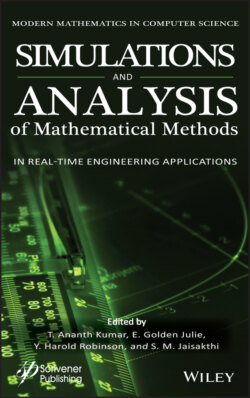Читать книгу Simulation and Analysis of Mathematical Methods in Real-Time Engineering Applications - Группа авторов - Страница 36
2.2.1 Need of Computational Offloading and Its Benefit
ОглавлениеComputational offloading is a process of offloading or unloading computation tasks at the edge servers rather than the cloud.
i) Advantages of Computational Offloading:
There are various advantages of offloading, which are depicted in Figure 2.4. The benefits of performing computational tasks at the edge devices are [14]:
Energy consumption - When computation tasks are performed at the edge servers instead of at the cloud, less energy is consumed, thus making the system energy efficient [14] along with the increase in battery lifetime (Figure 2.4).
Figure 2.4 Offloading schemes advantages.
Complex processing - Due to the computation tasks performed at the edge servers, the complexity of computation tasks at the end devices is avoided; thus, it saves the end devices’ battery life [14].
Scalability - Due to offloading process at the edge servers, mobile applications, e.g., mobile gaming, mobile healthcare, etc., can run at the end devices (Figure 2.4). End devices cannot perform complex computations as they are run at the edge servers [14].
Performance - Offloading tasks at the edge servers thrives for excellent performance (Figure 2.4), resources, flexibility, and cost-effectiveness.
Cost Effective - Other advantage that can be inferred from the figure is that the methods and ease of computational tasks help reduce the overall cost of the system (Figure 2.4).
Security and Privacy - The overall security concerning privacy (Figure 2.4) is also increased.
New application support - Offloading provides the ease of application to run (Figure 2.4).
ii) Applications of Computational offloading [14]:
Due to the advantages of the offloading technique, along with the capability of low latency and high bandwidth, the applications that thrive with offloading techniques are:
Intelligent Transportation Systems - Vehicular systems require ultra-low latency and reliability; thus, the applications, e.g., road safety services, autonomous driving, road traffic and optimization, benefit from offloading techniques.
Serious gaming - Applications in education, healthcare, entertainment, simulation and training focus on low latency requirement, thus offloading technique helps in satisfying the low latency also by implementing round trip time to 1ms.
Robotics and Telepresence - As response times are needed much quicker, in terms of milliseconds, applications like earthquake relief, emergency rescue, etc., benefit from offloading techniques.
AR/VR/MR - The augmented reality, Virtual reality and Mixed reality are the services that benefit from offloading technique due to the server’s low latency advantage.
Though the applications defined are not limited to, with the emergence of 5G, the offloading computation can provide much more efficiency in low latency and high bandwidth.
